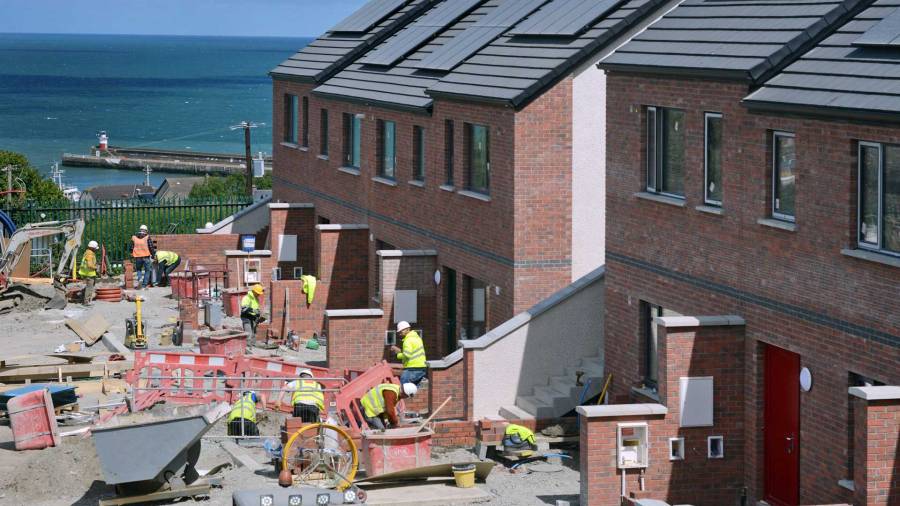Keeping in contact
HAIL is rising to the challenge of managing the mental health impact of the pandemic on its tenants and vulnerable clients
HAIL Neighbours’ Day in 2019

STRATEGY

Martina Smith
CEO, Housing Association for Integrated Living (HAIL)
I’m sure like many of you, having long experience of business continuity plans and setting out what the ‘perfect storm’ would look like, I didn’t expect to refer to these documents in quite as much detail as I have since March 2020. They didn’t quite cover a pandemic, but there was a great deal in them that provided the building blocks to ensure we were best able to manage the new COVID-19 environment and the risks it brought with it.
As with many of us, in both the housing and support sectors, HAIL was very quickly able to adapt our services in line with the new restrictions. All staff, bar a few essential colleagues in the office, worked from home and our services were cut back from personal visits to telephone or online initially.
In some ways that was the easy part. Getting everything in place again to get our services back up and running after the initial lockdown was slightly more difficult, developing new procedures and guidance for our staff, contractors and tenants. For a long while it did feel like all that was being achieved was COVID-19 planning. Now, seven months later, working with COVID-19 is embedded in everything we do.
Lessons learned
At HAIL, we have been providing homes and mental health tenancy sustainment support for more than 35 years. Those that are availing of our support predominantly have severe and enduring mental health difficulties. We have 400 homes in the greater Dublin region and in the midlands, for supported and general needs tenants. In 2019, HAIL supported 207 tenants and 256 clients in additional projects for people in other tenancies.
Much of our work is integrating our tenants and clients into the community and preventing isolation. We are finding new ways of doing this, for example providing peer support and peer-led online groups, organised events like exercise and walks, and online support planning sessions providing extra support. Ultimately though, that will never replace the face-to-face human contact we all need. We are now beginning to see the impact this absence of personal contact is having on the lives of the people we work with.
In numbers
We have an increased volume of calls to our office and a rise in anti-social behaviour of a more serious level. A recent survey of our tenants and clients showed:
48%
identified strong feelings of isolation beyond previous levels experienced
37%
had an increased level of stress or anxiety
34%
said the reduction of face-to-face services was having a significant impact on their wellbeing
19%
said that they had experienced a relapse in their condition
Challenges
These are worrying statistics and the challenge for HAIL now is how we are managing the mental health impact of the pandemic on our tenants and clients. In future, we will be maintaining our physical face-to-face support to our tenants and clients under all of the five levels in the Government’s National Framework for Living with COVID-19 where we can. This is an essential service.
Another challenge for us is to keep our staff motivated and help with their own health and wellbeing at work. Many of us now have additional stresses and worries outside work that were not there before. Being a housing officer or a tenancy support worker can sometimes be a tough job, but also very rewarding, so our plan is to focus on celebrating all the small things with all our staff. We also offer a wide range of support, including access to counselling, online social events, training, additional supervision meetings, and, most importantly, ensuring a strong staff voice in what we are doing.
“In future, we will be maintaining our physical face-to-face support to our tenants and clients under all of the five levels in the Government’s National Framework for Living with COVID-19 where we can. This is an essential service”
Strategic planning
In the background we are determined to keep on target with the key objectives in our Strategic Plan 2020-2022. We’ve had great support and direction from our board of directors from the outset and in particular when looking at the potential financial impact and scenario-planning for the organisation. Ensuring our income streams were maintained both from our rents and our support service funders was really important from the outset of the pandemic.
Now our challenge is to continue delivering our crucial services, which means not only maintaining the funding we have to do this, but also increasing it. The support funding that HAIL has received for many years has not increased – this position is not sustainable. Now is not the time for us to be forced to cut any of our services.
As a result, I am delighted to see the government’s commitment to mental health and housing in the Budget 2021. I hope that this pledge will ensure HAIL’s model of providing a secure home and mental health tenancy sustainment support is maintained for many decades to come.


